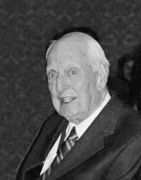Awards
- Honorary Degree - 1978
- LL.D.
- Doctor of Laws
- Commencement
- Bloomington, Indiana
- Presenter: John William Ryan
- Distinguished Professor (Emeritus) - 1968
- Guggenheim Fellow - 1963

When Thomas Clark became the formal historian of Indiana University, he crowned a brilliant academic career which had given great service both to IU and to the University of Kentucky. Born in Louisville, Mississippi, Thomas Clark gained his B.A. from the University of Mississippi, and, following graduate work at the University of Virginia and the University of Kentucky, took his doctorate from Duke University in 1932. He then went back to the history department at the University of Kentucky, where he remained until 1968, teaching, researching, and producing an invaluable body of work which comprises some sixty articles and twenty books on the history of the South and the frontier. Such was his contribution to the University of Kentucky that in 1968 Professor Clark was honored with a simultaneous presentation of teaching and research awards.
Professor Clark came to Indiana University in 1966 as the Sesqui-centennial Professor of American History, and in 1968 joined the resident faculty here. In 1970 the first volume of Indiana University, Midwest Pioneer, a multi-volume history of Indiana University, was published. Professor Clark wrote three more volumes of this history, and in 1971 his work was honored with the Indiana Author's Award. Thomas Clark's contribution to scholarship and to history was also acknowledged nationally with a Guggenheim Fellowship, an Award of Merit from the Association of State and Local History, and honorary degrees from Lincoln Memorial University, Washington and Lee University, Berea College, and the University of Louisville.
Professor Clark's dedication to historical scholarship and his contribution to education extend beyond a lifetime of excellent college teaching. He dedicated his energies and knowledge to several major historical associations, as Managing Editor of Journal, as President of both the Southern History Association and the Mississippi Valley Historical Association, and as Executive Secretary to the Organization of American Historians. His contribution to education included writing three elementary history books to introduce children to the frontier history of the United States, delivering the Patten Lectures in 1971, and serving with distinction on the Boards of Trustees of the University of Kentucky and of the Truman Library Institute. He retired from Indiana University in 1973.